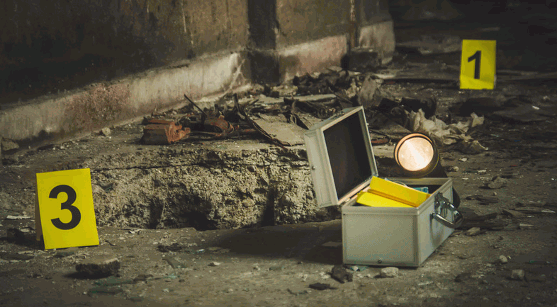
There are many reasons why people might Google terms like "Do the police clean up crime scenes UK?" or "Who is responsible for cleaning crime scenes?", although it may well be that you really need to know the answer as you are directly affected.
If you're wondering about this, or if your property has been the scene of a crime or traumatic incident, the Clean Team Scotland can help.
As professional crime scene cleaners, we have the knowledge and experience to guide you through what can be a very distressing and unsettling time.
In this blog, we'll present the facts clearly to help you understand the processes involved and any action you are expected to take.
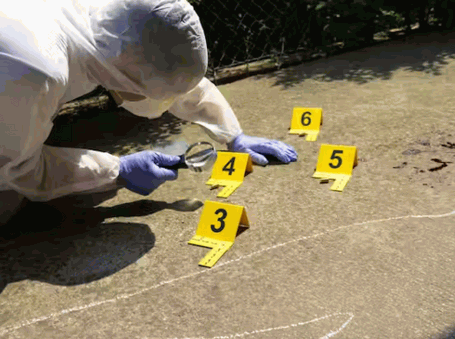
UK law stipulates that the property owner is responsible for sorting out the crime scene cleanup in most cases.
Now, this might seem a little unfair, as the property owners involved rarely - if ever - commit the crime!
However, it's the law and there's no way around this. So, if your property becomes a crime scene, you will be burdened with the task of getting it cleaned up.
Here's a more detailed breakdown of the rules as they currently stand:
If a crime occurs in a private property, such as a home, the responsibility for arranging for crime scene cleanup usually rests with the property owner or the occupant's family.

When a crime takes place in a public area, such as on streets or in public transport, the responsibility often falls to the local council or the organisation responsible for that location. For example:
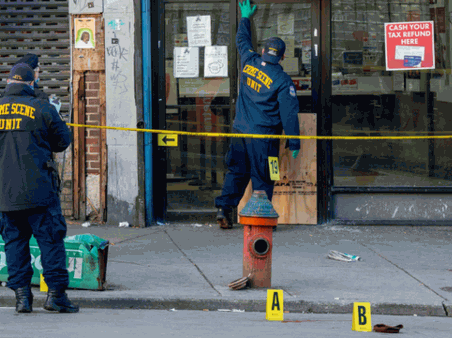
If a crime happens on commercial premises, the business or property owner typically bears the responsibility for cleanup.
It all depends on the nature of the crime involved. In the event of minor acts of vandalism or theft, where damage has been caused to property and goods, it's unlikely that you'll need to engage a crime scene cleaning service.
However, a professional cleaning company will usually be required for scenes of violent crimes, particularly when blood and bodily fluids are present. These substances carry a health risk as they may carry harmful bloodborne pathogens including hepatitis a, hepatitis b, HIV/AIDS, MRSA and other infectious diseases. Essentially, professional crime scene cleaners will be needed wherever there is a risk to public health.
In the event of a road traffic accident*, professional cleaners may be needed to deal with vehicle wreckage contaminated by blood spills and body fluids.
*While these aren't always crime scenes as such, they still require specialist knowledge and handling.
It's also not uncommon for drug paraphernalia to be present, and contaminated areas often contain sharps, such as infected needles, blades or broken glass.
In a suspected murder scene or in the event of an 'unattended death' (a body undiscovered for some time), decomposition may have occurred, leading to the presence of foul odours, congealed blood and other bodily fluids.
In all these cases, you'll need crime scene cleaning services to do the job!
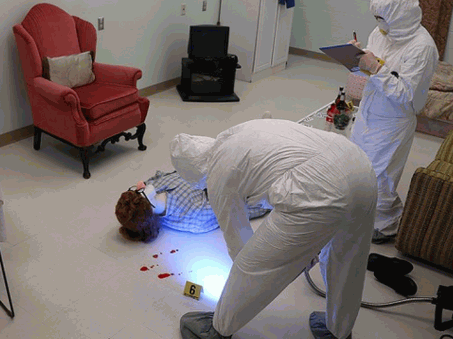
Crime scene cleaning must always be undertaken by professional crime scene cleaners; this isn't a simple case of putting on rubber gloves and scrubbing the area with soap and water!
The cleaning process must be rigorous, effective and thorough, following all health and safety procedures to the letter.
Because of this, it's essential to choose the right company for the job (like Clean Team Scotland). The company in question must have the capability to deal with biohazard cleaning, biological material, and hazardous waste of all kinds. They must also wear the correct personal protective equipment (PPE), and be fully aware of all the potential health risks.
Crime scene cleaners are also referred to as forensic cleaners or bioremediation specialists, and becoming a crime scene cleaner requires a disciplined mental approach and intensive training.
You'll be dealing with murder scenes, trauma scenes and a range of distressing and upsetting scenarios - this is not a job for the faint of heart!
Don’t miss our post "Who cleans up after a death".
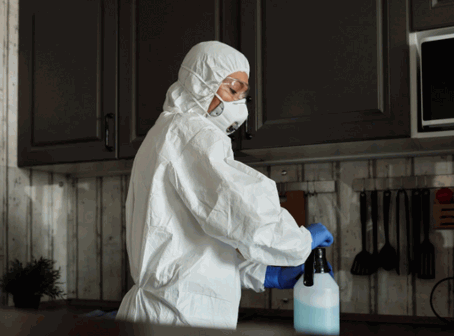
Cleaning a crime scene or site of any traumatic event requires training, skill, and the right mental attitude.
Using our team as an example, here's a description of a typical trauma clean:

Our trauma cleaning team attends any scene that we are called to attend by emergency services or crime scene investigators.
This can include any of the following:
Cleanup involving blood, bodily fluids, and potential tissue remnants left behind after violent crimes.
Bloodborne pathogens are a major risk, requiring specialised cleaning, disinfecting, and disposal.
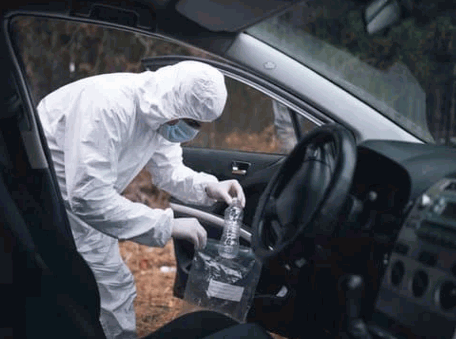
Scenes involving self-harm or suicide require sensitive handling, particularly for families and property owners.
This often involves biohazards that need careful removal to prevent contamination.

When a person dies and is not discovered for an extended period, decomposition begins, causing significant biohazard concerns and odour issues.
This requires specialised deodorising and biohazard removal techniques.
Industrial accidents, road traffic accidents, and other accidental fatalities can leave behind blood, fluids, and sometimes chemical hazards.
These are common in workplaces, factories, construction sites, and public roads.

Properties with extreme hoarding or filth accumulation, which can pose health hazards like excessive mould, bacteria, and animal waste.
In some cases, deceased animals or rodent infestations add to the health risks.

Situations where bodily fluids, biological materials, dangerous chemicals or other hazardous materials are deliberately introduced, such as vandalism with animal blood or other substances.
Requires careful cleaning to remove harmful pathogens and contaminants.

Public areas where violent or traumatic events have occurred, such as shootings, stabbings, or terrorist attacks.
These spaces need to be sanitised and decontaminated rapidly to ensure public safety.
Situations involving deceased or injured animals, especially when there is a risk of zoonotic disease transmission (such as rabies or anthrax).
These scenes are typically handled by cleaners with experience in animal biohazards.

It's all very well knowing who cleans up crime scenes, but who foots the bill?
Again, unfortunately, it comes back to the person who owns the property or business where the crime occurred. Local authorities will have to pay if the trauma scene is located on public land, although arguments over boundaries and land ownership often arise in such cases.
It's worth checking out insurance policies that include a clause for crime scene cleaning, as the average bill is around £3,500.
Remember, never tackle crime scene cleaning yourself! This is a job for professional biohazard remediation specialists with experience and training.
If or when you need help in this area, contact Clean Team Scotland for an effective, no-nonsense crime scene cleaning service that puts you first.




